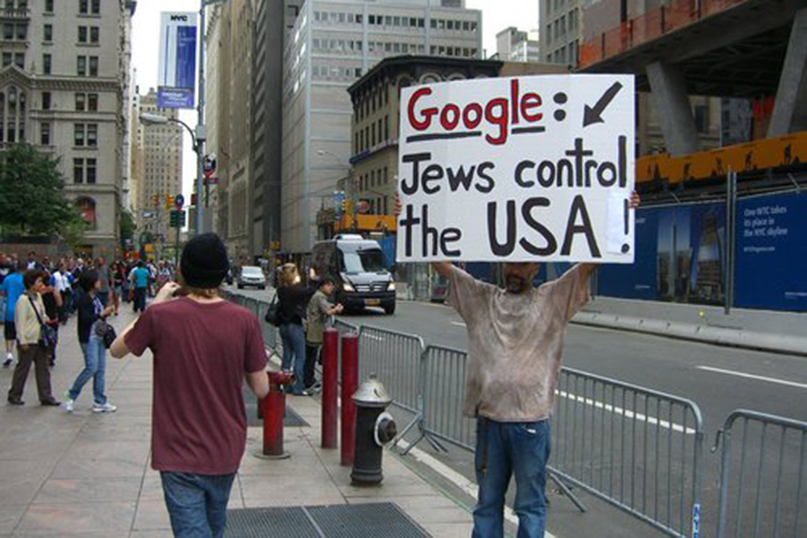
NEW YORK, New York – Well over half of Jewish Americans have either experienced or directly witnessed some form of antisemitic incident in the last five years, according to a new poll released Thursday, April 1 by the Anti-Defamation League (ADL).
The 2021 poll found that 63 percent of respondents have either experienced or heard antisemitic comments, slurs or threats targeting others, an increase from 54 percent a year earlier.
Alarmingly, nine percent of Jewish Americans indicated in the survey they had been physically attacked in the last five years because they are Jewish, up slightly from 2020 but still within the margin of error. And one in four Jewish Americans (25 percent) reported having been directly targeted by antisemitic comments slurs or threats.
“In the aftermath of major antisemitic attacks in Pittsburgh, Poway, Jersey City and Monsey, American Jews are reporting that they feel less safe in the U.S. today than they were just a decade earlier,” said Jonathan Greenblatt, ADL CEO. “Looking back on the past five years, which were bookended by the antisemitism in Charlottesville in 2017 and the hateful symbols on display during the breach of the U.S. Capitol on January 6, it is understandable that the level of anxiety is rising and concerns about communal safety are on everyone’s minds.”
Some additional findings include:
• Fifty-six percent of Jewish Americans have heard antisemitic comments, slurs or threats targeting others in the past five years.
• Jewish Americans frequently encounter antisemitism online, with 36 percent saying they had experienced some form of online harassment.
• Thirty-one percent say they have been called offensive names online.
• Thirteen percent say they have been physically threatened online.
• Thirteen percent have avoided identifying themselves as Jewish on social media.
• More than half (59 percent) of Jewish Americans polled said they feel less safe in the U.S. today than they were a decade ago.
• Forty-nine percent reported being afraid of a violent attack at a synagogue.
• Antisemitic harassment comes at a cost: Thirty-three percent of respondents who have been harassed reported having trouble sleeping, and 16 percent said the harassment affected their lives financially.
“These findings reinforce the need for a whole-of-society approach to combat antisemitism,” said Greenblatt. “Whether it appears on social media or on a synagogue, antisemitism has no place in our communities. We need corporate and government leaders to step up to ensure that it does not gain a foothold on social media or in broader society.”
The survey was fielded by YouGov, a leading public opinion and data analytics firm, examining Jewish Americans experiences with antisemitism both online and offline. The survey of more than 500 Jewish American adults over the age of 18 was conducted from Jan. 7-15, 2021 and has a margin of error of plus or minus 4.4 percent.
Main Photo: A man holds a sign promoting an antisemitic conspiracy theory across the street from the former World Trade Center site on Sept. 11, 2011, the 10th anniversary of the 9/11 attacks. (Luigi Novi via Wikimedia Commons)








 Southern New England Jewish Ledger
Southern New England Jewish Ledger









